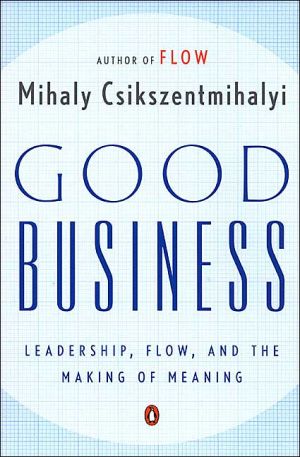The 48 Laws of Power
Amoral, cunning, ruthless, and instructive, this piercing work by the bestselling author of The 33 Strategies of War and Mastery distills 3,000 years of the history of power in to 48 well-explicated laws\ As attention-grabbing in its design as it is in its content, this bold volume outlines the laws of power in their unvarnished essence, synthesizing the philosophies of Machiavelli, Sun-tzu, Carl von Clausewitz, and other great thinkers. Some laws teach the need for prudence ("Law 1: Never...
Search in google:
Cunning, instructive, and amoral, this controversial bestseller distills 3,000 years of the history of power into 48 well-explicated laws. Law 1: Never Outshine the Master. Law 3: Conceal Your Intentions. Law 7: Get Others to Do the Work for You, but Always Take the Credit. Law 15: Crush Your Enemy Totally. Law 33: Discover Each Man's Thumbscrew.These are the laws of power in their unvarnished essence—the philosophies of Machiavelli (The Prince), Sun-tzu (The Art of War), Carl von Clausewitz, Talleyrand, the great seducer Casanova, con man Yellow Kid Weil, and other legendary thinkers and schemers. They teach prudence, stealth, mastery of one's emotions, the art of deception, and the total absence of mercy. Like it or not, all have practical applications in real life.Each law is illustrated with examples of observance or transgression drawn from history and featuring such famous figures as Queen Elizabeth I, Henry Kissinger, Mao, Alfred Hitchcock, P.T. Barnum, Haile Selassie, Catherine the Great, and Socrates. Convincing, practical, sometimes shocking, this book will fascinate anyone interested in gaining, observing, or defending against ultimate control. Newsweek This season's most talked about all-purpose personal strategy guide and philosophical compendium.
\ \ \ \ \ Chapter One\ LAW\ 1\ \ NEVER OUTSHINE THE MASTER\ JUDGMENT\ Always make those above you feel comfortably superior. In your desire to please and impress them, do not go too far in displaying your talents or you might accomplish the opposite--inspire fear and insecurity. Make your masters appear more brilliant than they are and you will attain the heights of power.\ TRANSGRESSION OF THE LAW\ Nicolas Fouquet, Louis XIV's finance minister in the first years of his reign, was a generous man who loved lavish parties, pretty women, and poetry. He also loved money, for he led an extravagant lifestyle. Fouquet was clever and very much indispensable to the king, so when the prime minister, Jules Mazarin, died, in 1661, the finance minister expected to be named the successor. Instead, the king decided to abolish the position. This and other signs made Fouquet suspect that he was falling out of favor, and so he decided to ingratiate himself with the king by staging the most spectacular party the world had ever seen. The party's ostensible purpose would be to commemorate the completion of Fouquet's chateau, Vaux-le- Vicomte, but its real function was to pay tribute to the king, the guest of honor.\ The most brilliant nobility of Europe and some of the greatest minds of the time--La Fontaine, La Rochefoucauld, Madame de Sevigne --attended the party. Moliere wrote a play for the occasion, in which he himself was to perform at the evening's conclusion. The party began with a lavish seven-course dinner, featuring foods from the Orient never before tasted in France, aswell as new dishes created especially for the night. The meal was accompanied with music commissioned by Fouquet to honor the king.\ After dinner there was a promenade through the chateau's gardens. The grounds and fountains of Vaux-le-Vicomte were to be the inspiration for Versailles.\ Fouquet personally accompanied the young king through the geometrically aligned arrangements of shrubbery and flower beds. Arriving at the gardens' canals, they witnessed a fireworks display, which was followed by the performance of Moliere's play. The party ran well into the night and everyone agreed it was the most amazing affair they had ever attended.\ The next day, Fouquet was arrested by the king's head musketeer, D'Artagnan. Three months later he went on trial for stealing from the country's treasury. (Actually, most of the stealing he was accused of he had done on the king's behalf and with the king's permission.) Fouquet was found guilty and sent to the most isolated prison in France, high in the Pyrenees Mountains, where he spent the last twenty years of his life in solitary confinement.\ Interpretation\ Louis XIV, the Sun King, was a proud and arrogant man who wanted to be the center of attention at all times; he could not countenance being outdone in lavishness by anyone, and certainly not his finance minister. To succeed Fouquet, Louis chose Jean-Baptiste Colbert, a man famous for his parsimony and for giving the dullest parties in Paris. Colbert made sure that any money liberated from the treasury went straight into Louis's hands. With the money, Louis built a palace even more magnificent than Fouquet's--the glorious palace of Versailles. He used the same architects, decorators, and garden designer. And at Versailles, Louis hosted parties even more extravagant than the one that cost Fouquet his freedom.\ Let us examine the situation. The evening of the party, as Fouquet presented spectacle on spectacle to Louis, each more magnificent than the one before, he imagined the affair as demonstrating his loyalty and devotion to the king. Not only did he think the party would put him back in the king's favor, he thought it would show his good taste, his connections, and his popularity, making him indispensable to the king and demonstrating that he would make an excellent prime minister. Instead, however, each new spectacle, each appreciative smile bestowed by the guests on Fouquet, made it seem to Louis that his own friends and subjects were more charmed by the finance minister than by the king himself, and that Fouquet was actually flaunting his wealth and power. Rather than flattering Louis XIV, Fouquet's elaborate party offended the king's vanity. Louis would not admit this to anyone, of course--instead, he found a convenient excuse to rid himself of a man who had inadvertently made him feel insecure.\ Such is the fate, in some form or other, of all those who unbalance the master's sense of self, poke holes in his vanity, or make him doubt his preeminence.\ OBSERVANCE OF THE LAW\ In the early 1600s, the Italian astronomer and mathematician Galileo found himself in a precarious position. He depended on the generosity of great rulers to support his research, and so, like all Renaissance scientists, he would sometimes make gifts of his inventions and discoveries to the leading patrons of the time. Once, for instance, he presented a military compass he had invented to the Duke of Gonzaga. Then he dedicated a book explaining the use of the compass to the Medicis. Both rulers were grateful, and through them Galileo was able to find more students to teach. No matter how great the discovery, however, his patrons usually paid him with gifts, not cash. This made for a life of constant insecurity and dependence. There must be an easier way, he thought.\ Galileo hit on a new strategy in 1610, when he discovered the moons of Jupiter. Instead of dividing the discovery among his patrons--giving one the telescope he had used, dedicating a book to another, and so on--as he had done in the past, he decided to focus exclusively on the Medicis. He chose the Medicis for one reason: Shortly after Cosimo I had established the Medici dynasty, in 1540, he had made Jupiter, the mightiest of the gods, the Medici symbol--a symbol of a power that went beyond politics and banking, one linked to ancient Rome and its divinities.\ Galileo turned his discovery of Jupiter's moons into a cosmic event honoring the Medicis' greatness. Shortly after the discovery, he announced that "the bright stars [the moons of Jupiter] offered themselves in the heavens" to his telescope at the same time as Cosimo II's enthronement. He said that the number of the moons--four--harmonized with the number of the Medicis (Cosimo II had three brothers) and that the moons orbited Jupiter as these four sons revolved around Cosimo I, the dynasty's founder. More than coincidence, this showed that the heavens themselves reflected the ascendancy of the Medici family. After he dedicated the discovery to the Medicis, Galileo commissioned an emblem representing Jupiter sitting on a cloud with the four stars circling about him, and presented this to Cosimo II as a symbol of his link to the stars.\ In 1610 Cosimo II made Galileo his official court philosopher and mathematician, with a full salary. For a scientist this was the coup of a lifetime. The days of begging for patronage were over.\ Interpretation\ In one stroke, Galileo gained more with his new strategy than he had in years of begging. The reason is simple: All masters want to appear more brilliant than other people.\ They do not care about science or empirical truth or the latest invention; they care about their name and their glory. Galileo gave the Medicis infinitely more glory by linking their name with cosmic forces than he had by making them the patrons of some new scientific gadget or discovery.\ Scientists are not spared the vagaries of court life and patronage. They too must serve masters who hold the purse strings. And their great intellectual powers can make the master feel insecure, as if he were only there to supply the funds--an ugly, ignoble job. The producer of a great work wants to feel he is more than just the provider of the financing. He wants to appear creative and powerful, and also more important than the work produced in his name. Instead of insecurity you must give him glory. Galileo did not challenge the intellectual authority of the Medicis with his discovery, or make them feel inferior in any way; by literally aligning them with the stars, he made them shine brilliantly among the courts of Italy. He did not outshine the master, he made the master outshine all others.\ KEYS TO POWER\ Everyone has insecurities. When you show yourself in the world and display your talents, you naturally stir up all kinds of resentment, envy, and other manifestations of insecurity. This is to be expected. You cannot spend your life worrying about the petty feelings of others. With those above you, however, you must take a different approach: When it comes to power, outshining the master is perhaps the worst mistake of all.\ Do not fool yourself into thinking that life has changed much since the days of Louis XIV and the Medicis. Those who attain high standing in life are like kings and queens: They want to feel secure in their positions, and superior to those around them in intelligence, wit, and charm. It is a deadly but common misperception to believe that by displaying and vaunting your gifts and talents, you are winning the master's affection. He may feign appreciation, but at his first opportunity he will replace you with someone less intelligent, less attractive, less threatening, just as Louis XIV replaced the sparkling Fouquet with the bland Colbert. And as with Louis, he will not admit the truth, but will find an excuse to rid himself of your presence.\ This Law involves two rules that you must realize. First, you can inadvertently outshine a master simply by being yourself. There are masters who are more insecure than others, monstrously insecure; you may naturally outshine them by your charm and grace.\ No one had more natural talents than Astorre Manfredi, prince of Faenza. The most handsome of all the young princes of Italy, he captivated his subjects with his generosity and open spirit.\ In the year 1500, Cesare Borgia laid siege to Faenza. When the city surrendered, the citizens expected the worst from the cruel Borgia, who, however, decided to spare the town: He simply occupied its fortress, executed none of its citizens, and allowed Prince Manfredi, eighteen at the time, to remain with his court, in complete freedom.\ A few weeks later, though, soldiers hauled Astorre Manfredi away to a Roman prison. A year after that, his body was fished out of the River Tiber, a stone tied around his neck. Borgia justified the horrible deed with some sort of trumped-up charge of treason and conspiracy, but the real problem was that he was notoriously vain and insecure. The young man was outshining him without even trying. Given Manfredi's natural talents, the prince's mere presence made Borgia seem less attractive and charismatic. The lesson is simple: If you cannot help being charming and superior, you must learn to avoid such monsters of vanity. Either that, or find a way to mute your good qualities when in the company of a Cesare Borgia.\ Second, never imagine that because the master loves you, you can do anything you want. Entire books could be written about favorites who fell out of favor by taking their status for granted, for daring to outshine. In late-sixteenth-century Japan, the favorite of Emperor Hideyoshi was a man called Sen no Rikyu. The premier artist of the tea ceremony, which had become an obsession with the nobility, he was one of Hideyoshi's most trusted advisers, had his own apartment in the palace, and was honored throughout Japan. Yet in 1591, Hideyoshi had him arrested and sentenced to death. Rikyu took his own life, instead. The cause for his sudden change of fortune was discovered later: It seems that Rikyu, former peasant and later court favorite, had had a wooden statue made of himself wearing sandals (a sign of nobility) and posing loftily. He had had this statue placed in the most important temple inside the palace gates, in clear sight of the royalty who often would pass by. To Hideyoshi this signified that Rikyu had no sense of limits. Presuming that he had the same rights as those of the highest nobility, he had forgotten that his position depended on the emperor, and had come to believe that he had earned it on his own. This was an unforgivable miscalculation of his own importance and he paid for it with his life. Remember the following: Never take your position for granted and never let any favors you receive go to your head.\ Knowing the dangers of outshining your master, you can turn this Law to your advantage. First you must flatter and puff up your master. Overt flattery can be effective but has its limits; it is too direct and obvious, and looks bad to other courtiers. Discreet flattery is much more powerful. If you are more intelligent than your master, for example, seem the opposite: Make him appear more intelligent than you. Act naive. Make it seem that you need his expertise. Commit harmless mistakes that will not hurt you in the long run but will give you the chance to ask for his help. Masters adore such requests. A master who cannot bestow on you the gifts of his experience may direct rancor and ill will at you instead.\ If your ideas are more creative than your master's, ascribe them to him, in as public a manner as possible. Make it clear that your advice is merely an echo of his advice.\ If you surpass your master in wit, it is okay to play the role of the court jester, but do not make him appear cold and surly by comparison. Tone down your humor if necessary, and find ways to make him seem the dispenser of amusement and good cheer. If you are naturally more sociable and generous than your master, be careful not to be the cloud that blocks his radiance from others. He must appear as the sun around which everyone revolves, radiating power and brilliance, the center of attention. If you are thrust into the position of entertaining him, a display of your limited means may win you his sympathy. Any attempt to impress him with your grace and generosity can prove fatal: Learn from Fouquet or pay the price.\ In all of these cases it is not a weakness to disguise your strengths if in the end they lead to power. By letting others outshine you, you remain in control, instead of being a victim of their insecurity. This will all come in handy the day you decide to rise above your inferior status. If, like Galileo, you can make your master shine even more in the eyes of others, then you are a godsend and you will be instantly promoted.\ Authority: Avoid outshining the master. All superiority is odious, but the superiority of a subject over his prince is not only stupid, it is fatal. This is a lesson that the stars in the sky teach us--they may be related to the sun, and just as brilliant, but they never appear in her company. (Baltasar Gracian, 1601-1658)\ REVERSAL\ You cannot worry about upsetting every person you come across, but you must be selectively cruel. If your superior is a falling star, there is nothing to fear from outshining him. Do not be merciful--your master had no such scruples in his own cold-blooded climb to the top. Gauge his strength. If he is weak, discreetly hasten his downfall: Outdo, outcharm, outsmart him at key moments. If he is very weak and ready to fall, let nature take its course. Do not risk outshining a feeble superior--it might appear cruel or spiteful. But if your master is firm in his position, yet you know yourself to be the more capable, bide your time and be patient. It is the natural course of things that power eventually fades and weakens. Your master will fall someday, and if you play it right, you will outlive and someday outshine him.
PrefaceLaw 1Never Outshine the Master1Law 2Never Put too much Trust in Friends, Learn how to use Enemies8Law 3Conceal your Intentions16Law 4Always say Less than Necessary31Law 5So much Depends on Reputation - Guard it with your Life37Law 6Court Attention at all Cost44Law 7Get others to do the Work for you, but always Take the Credit56Law 8Make other People Come to you - use Bait if Necessary62Law 9Win Through your Actions, Never through Argument69Law 10Infection: Avoid the Unhappy and Unlucky76Law 11Learn to Keep People Dependent on you82Law 12Use Selective Honesty and Generosity to Disarm your Victim89Law 13When Asking for Help, Appeal to People's Self-Interest, Never to their Mercy or Gratitude95Law 14Pose as a Friend, Work as a Spy101Law 15Crush your Enemy Totally107Law 16Use Absence to Increase Respect and Honor115Law 17Keep others in Suspended Terror: Cultivate an Air of Unpredictability123Law 18Do not Build Fortresses to Protect yourself - Isolation is Dangerous130Law 19Know who you're Dealing with - do not Offend the Wrong Person137Law 20Do not Commit to Anyone145Law 21Play a Sucker to Catch a Sucker - Seem Dumber than your Mark156Law 22Use the Surrender Tactic: Transform Weakness into Power163Law 23Concentrate your Forces171Law 24Play the Perfect Courtier178Law 25Re-Create yourself191Law 26Keep your Hands Clean200Law 27Play on People's need to Believe to Create a Cultlike Following215Law 28Enter Action with Boldness227Law 29Plan All the Way to the end236Law 30Make your Accomplishments Seem Effortless245Law 31Control the Options: Get others to Play with the Cards you Deal254Law 32Play to People's Fantasies263Law 33Discover Each Man's Thumbscrew271Law 34Be Royal in your Own Fashion: Act Like a King to be Treated Like One282Law 35Master the Art of Timing291Law 36Disdain Things you cannot have: Ignoring them is the Best Revenge300Law 37Create Compelling Spectacles309Law 38Think as you Like but Behave Like others317Law 39Stir up Waters to Catch Fish325Law 40Despise the Free Lunch333Law 41Avoid Stepping into a Great Man's Shoes347Law 42Strike the Shepherd and the Sheep will Scatter358Law 43Work on the Hearts and Minds of others367Law 44Disarm and Infuriate with the Mirror Effect376Law 45Preach the need for Change, but Never Reform too much at Once392Law 46Never Appear too Perfect400Law 47Do not Go Past the Mark you Aimed for; in Victory, Learn when to Stop410Law 48Assume Formlessness419Selected Bibliography431Index433
\ NewsweekThis season's most talked about all-purpose personal strategy guide and philosophical compendium.\ \ \ \ \ Hardy GreenThe 48 Laws of Power seems to have been packaged more than published. . . . The moral advice adds up to a grim portrait of a ruthless, duplicitous universe.\ —BusinessWeek\ \ \ Publishers WeeklyGreene and Elffers have created an heir to Machiavelli's The Prince, espousing principles such as: everyone wants more power; emotions, including love, are detrimental; deceit and manipulation are life's paramount tools. Anyone striving for psychological health will be put off at the start, but the authors counter, saying "honesty is indeed a power strategy," and "genuinely innocent people may still be playing for power." Amoral or immoral, this compendium aims to guide those who embrace power as a ruthless game, and will entertain the rest. Elffers' layout (he is identified as the co-conceiver and designer in the press release) is stylish, with short epigrams set in red at the margins. Each law, with such elusive titles as "Pose as a Friend, Work as a Spy," "Get Others To Do the Work for You, But Always Take the Credit," "Conceal Your Intentions," is demonstrated in four ways--using it correctly, failing to use it, key aspects of the law and when not to use it. Illustrations are drawn from the courts of modern and ancient Europe, Africa and Asia, and devious strategies culled from well-known personae: Machiavelli, Talleyrand, Bismarck, Catherine the Great, Mao, Kissinger, Haile Selassie, Lola Montes and various con artists of our century. These historical escapades make enjoyable reading, yet by the book's conclusion, some protagonists have appeared too many times and seem drained. Although gentler souls will find this book frightening, those whose moral compass is oriented solely to power will have a perfect vade mecum.\ \ \ \ \ Library JournalUses examples from history to deliver 48 laws for the power-hungry, e.g., Law 1: "Never outshine the master." Designed by Elffers, a noted book packager.\ \ \ \ \ Library JournalUses examples from history to deliver 48 laws for the power-hungry, e.g., Law 1: "Never outshine the master." Designed by Elffers, a noted book packager.\ \ \ \ \ NewsweekThis season's most talked about all-purpose personal strategy guide and philosophical compendium.\ \ \ \ \ Kirkus ReviewsThe authors have created a sort of anti-Book of Virtues in this encyclopedic compendium of the ways and means of power. Everyone wants power and everyone is in a constant duplicitous game to gain more power at the expense of others, according to Greene, a screenwriter and former editor at Esquire (Elffers, a book packager, designed the volume, with its attractive marginalia). We live today as courtiers once did in royal courts: we must appear civil while attempting to crush all those around us. This power game can be played well or poorly, and in these 48 laws culled from the history and wisdom of the world's greatest power players are the rules that must be followed to win. These laws boil down to being as ruthless, selfish, manipulative, and deceitful as possible. Each law, however, gets its own chapter: "Conceal Your Intentions," "Always Say Less Than Necessary," "Pose as a Friend, Work as a Spy," and so on. Each chapter is conveniently broken down into sections on what happened to those who transgressed or observed the particular law, the key elements in this law, and ways to defensively reverse this law when it's used against you. Quotations in the margins amplify the lesson being taught. While compelling in the way an auto accident might be, the book is simply nonsense. Rules often contradict one another. We are told, for instance, to "be conspicuous at all costs," then told to "behave like others." More seriously, Greene never really defines "power," and he merely asserts, rather than offers evidence for, the Hobbesian world of all against all in which he insists we live. The world may be like this at times, but often it isn't. To ask why this is so would be a farmore useful project. If the authors are serious, this is a silly, distasteful book. If they are not, it's a brilliant satire. \ \ \ \ \ New York Magazine“It’s The Rules for suits. . . . Machiavelli has a new rival. And Sun-tzu better watch his back.”\ —New York Magazine\ \








